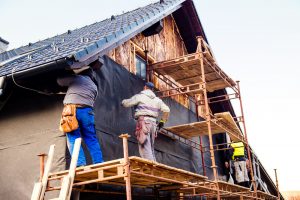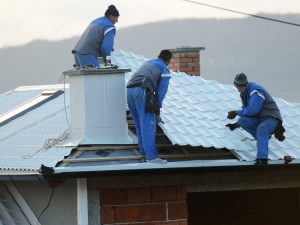
Highlights
- Verify the roofing company’s licensing and insurance status before hiring.
- Check for extensive positive reviews and testimonials from local clients.
- Ask about the roofing materials they use and warranties provided.
- Ensure the contractor offers detailed written estimates and transparent pricing.
- Confirm the company has experience handling the specific type of roofing you need.
- Look for contractors who prioritize safety standards and follow local building codes.
- Communication and professionalism are key indicators of reliability.
- Ask about cleanup services and post-project inspections.

When it comes to maintaining or replacing your roof, selecting the right roofing contractor in Pensacola, FL, is crucial. A roof protects your home from weather, enhances curb appeal, and adds to property value. But with many roofing companies available, how can you be sure you’re hiring one that is reputable, reliable, and experienced? This article answers common questions homeowners ask and provides practical tips to help you find a roofing contractor with great reviews and proven expertise.
Why Is Choosing the Right Roofing Contractor So Important?
A roof is a significant investment that can last decades when installed or repaired correctly. It serves as the primary barrier protecting your home from rain, wind, and other weather elements, so its integrity directly affects your family’s safety and comfort. Choosing the wrong roofing contractor can lead to poor workmanship, costly repairs, and even safety hazards such as leaks, structural damage, or materials failing prematurely.
Homeowners often ask: “How do I know if a roofing company is trustworthy?” or “What should I look for beyond just price?” These questions are important because a low bid might not always mean quality service. The answers lie in a combination of credentials, customer feedback, communication, and quality materials. Verifying licensing and insurance, reading verified reviews, ensuring clear communication throughout the project, and confirming the use of durable, manufacturer-backed materials are essential steps. Taking time to evaluate these factors can save you money, stress, and potential headaches in the long run.
Confirm Licensing, Insurance, and Credentials
One of the first questions to ask any roofing company is: “Are you licensed and insured in Florida?” Licensing ensures the contractor meets state requirements and adheres to professional standards designed to protect consumers. It means the company has passed necessary exams, follows building codes, and stays up to date on industry best practices. Insurance protects you from liability in case of accidents or damages during the project. Without proper insurance, you could be financially responsible if a worker is injured on your property or if the contractor causes damage to your home or neighboring properties.
Your roofing contractor should also carry worker’s compensation and general liability insurance. Worker’s compensation covers medical expenses and lost wages if an employee is hurt on the job, while general liability insurance protects you from claims related to property damage or bodily injury caused by the contractor’s work. The Florida Department of Business & Professional Regulation (DBPR) website is a useful resource to verify licenses for roofing contractors (source: DBPR). Asking the company directly for proof of these documents before signing a contract demonstrates professionalism and transparency. It also gives you peace of mind knowing you’re protected in case something goes wrong.
How to Evaluate Roofing Company Reviews and Reputation
Great reviews are often the best indicator of a reputable roofing company. Homeowners want to know: “Does this contractor deliver quality work on time?” and “Do they stand behind their service?” Websites like Google Reviews, Yelp, and the Better Business Bureau provide valuable insights from past clients. Look for companies with consistently high ratings and detailed feedback about their professionalism, timeliness, and workmanship.
In Pensacola, local roofing companies with a strong community presence often earn trust through word-of-mouth referrals. Asking neighbors or friends for recommendations is another great way to find trusted contractors.

What Roofing Materials Should a Reliable Contractor Use?
Different roofing materials come with varying costs, lifespans, and maintenance needs. Common materials include asphalt shingles, metal roofing, tile, and slate. When interviewing a contractor, ask: “What roofing materials do you recommend for my home and why?” A knowledgeable roofing company will tailor recommendations based on your home’s style, climate, and budget.
Furthermore, reputable contractors work with trusted suppliers to offer quality products. Make sure the contractor provides manufacturer warranties on materials in addition to their workmanship warranty. This dual protection helps cover issues that might arise later, giving you peace of mind.
Getting Clear Estimates and Transparent Pricing
One of the most frequent concerns homeowners share is unexpected costs. They ask: “How much will the roofing job cost?” and “Will there be hidden fees?” A trustworthy roofing company provides a detailed written estimate that breaks down labor, materials, permits, and other expenses.
Beware of contractors who offer very low bids without a thorough inspection. Such estimates often increase later with add-ons. Reliable companies provide no-obligation consultations with clear, itemized quotes. This approach helps clients compare offers fairly and avoid surprises.
Experience with Your Specific Roofing Needs
Not all roofing contractors are experts in every roofing type or repair. Some specialize in residential roofs, while others may focus on commercial or flat roofing systems. When you contact a company, specify your needs and ask: “Do you have experience handling this type of roofing project?”
For example, if you need hurricane-resistant roofing solutions—important in Pensacola’s coastal environment—ask if the contractor is familiar with local building codes and storm mitigation standards. Experienced roofing contractors know the best products and installation methods to withstand severe weather.
Safety Standards and Building Code Compliance
Safety is a priority for both homeowners and contractors. Ask: “What safety measures do you follow on the job site?” Are workers trained in fall protection and equipped with necessary safety gear? Is the company compliant with OSHA regulations? According to the Occupational Safety and Health Administration (OSHA), falls are among the most common causes of serious work-related injuries and deaths in construction, making proper safety training and equipment essential for roofing projects (source: OSHA).
Also, inquire whether the contractor obtains all required permits and inspections as part of the project. Failure to comply with local codes can result in fines or difficulty selling your home in the future.
How Important Is Communication and Professionalism?
Beyond technical skills, great communication reflects a roofing contractor’s professionalism. Homeowners commonly ask: “Will the contractor keep me updated?” and “How quickly do they respond to questions or concerns?” Reliable companies assign a project manager or point of contact who provides regular updates and is accessible throughout the process.
Asking for references and contacting previous clients can also give you a sense of the contractor’s customer service.
Post-Project Cleanup and Follow-Up
A reputable roofing contractor takes responsibility for the entire project from start to finish. That includes a thorough cleanup of debris and nails, as well as a final inspection with the homeowner to confirm satisfaction.
Make sure to ask: “Do you offer a warranty on your work?” and “Do you provide maintenance tips or inspection services after installation?” Companies that stand by their work will often offer follow-up visits or warranties that cover unexpected issues.
Final Thoughts: Making the Right Choice in Pensacola, FL
Choosing a reputable roofing contractor requires careful research and asking the right questions. Verify licensing and insurance, check reviews, ask about materials and warranties, ensure clear pricing, confirm relevant experience and prioritize safety and communication.
Taking time to select the right contractor will protect your investment and keep your home safe and beautiful for years.


